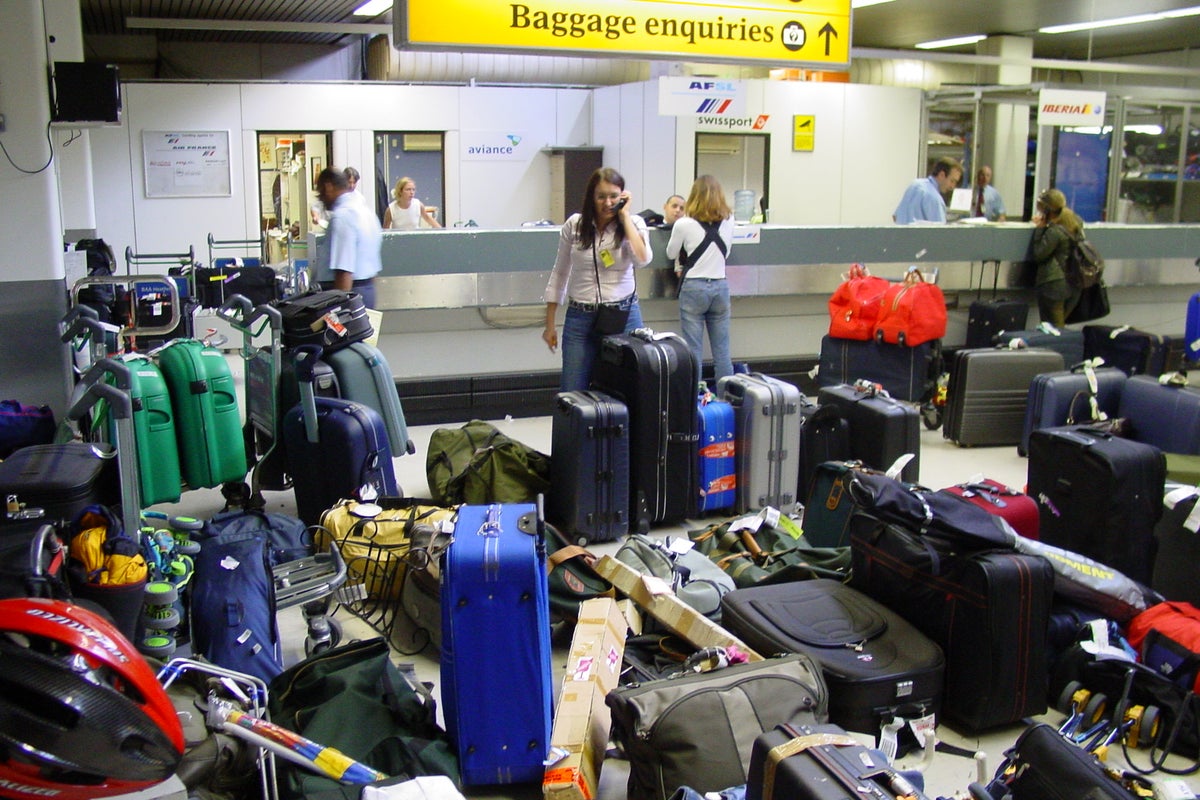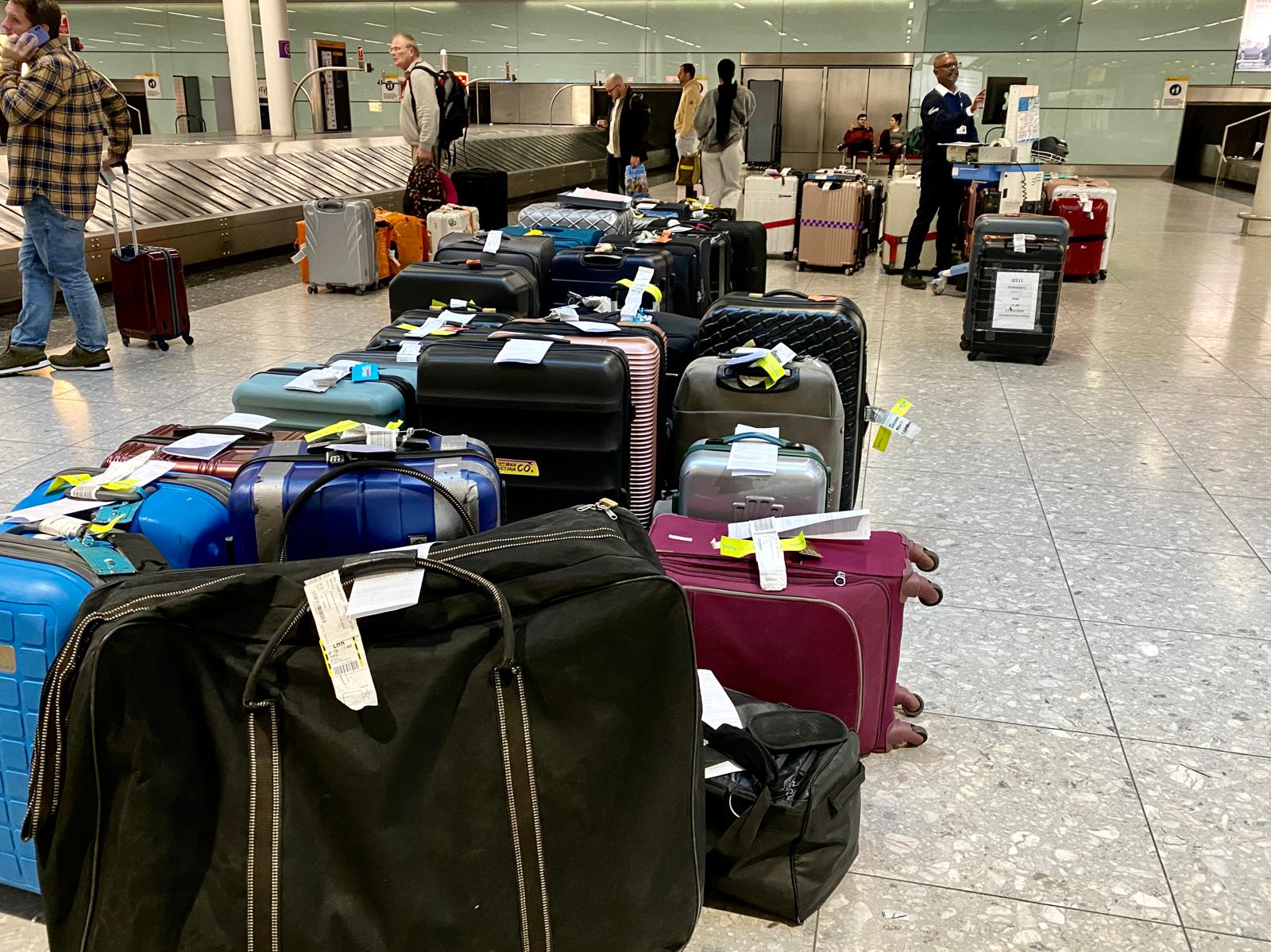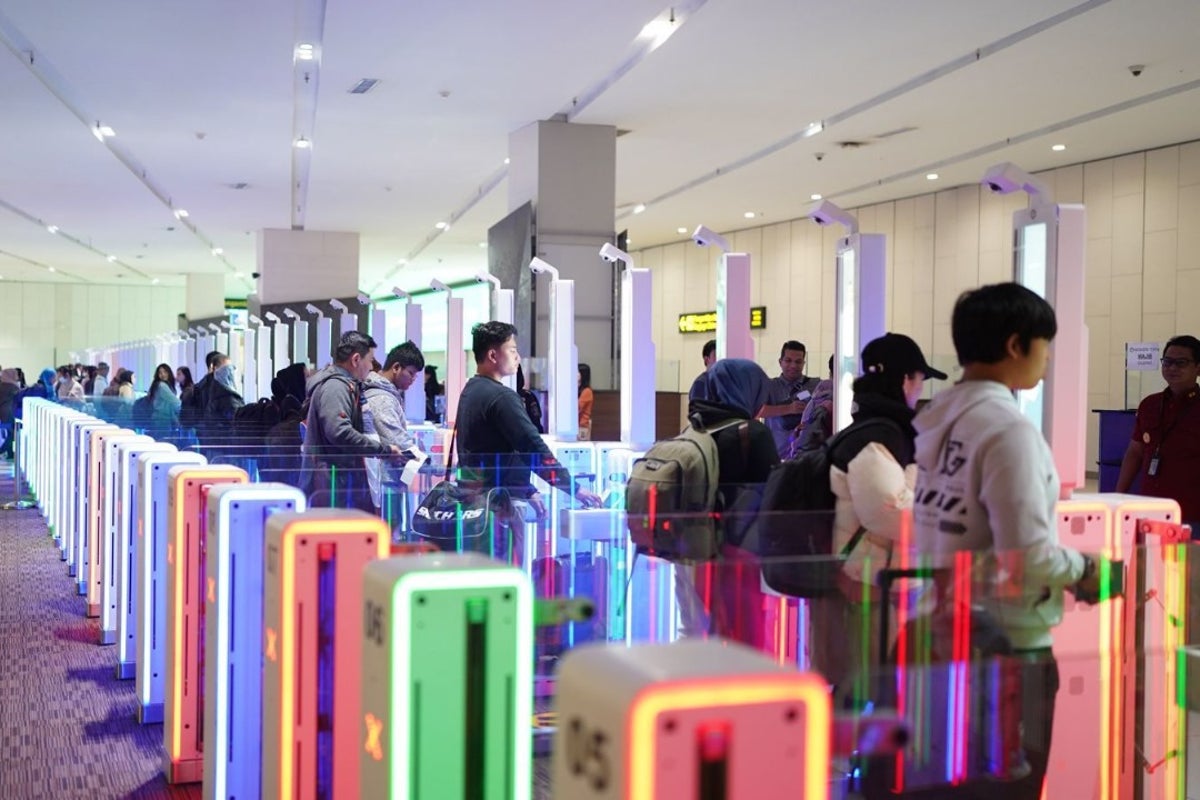Lost luggage? What to do if your airline lets you down
How to cut the chance of losing your baggage when flying – and when it gets lost, what are the chances of seeing it again?

Worldwide, checked-in cabin baggage goes missing at an alarming rate: faster than one piece of luggage every second, according to the aviation data specialist Sita.
Of every 1,000 bags checked in, seven fail to travel with their owner – averaging out as one passenger on every short-haul holiday flight to the Mediterranean.
In 2023, the last year for which figures are available, 36.1 million bags went astray across the world.
So what should you do if your bag is one of those tens of millions? How can you reduce the risk of your luggage wandering? And surely there must be a better way?
These are the key questions and answers.
My bag hasn’t turned up. What do I do now?
Because it is such a regular occurrence, the procedure is wearily familiar. Each airline has a representative in the baggage hall staffed by ground handlers. If your case doesn’t appear, then you can talk to them and begin the official procedure. This involves filling in a form known as a Property Irregularity Report (PIR), giving your personal details and a description of the lost case.
If there’s no one there, the airline will have a lost-baggage portal online where you can fill out a report. You must do that as soon as possible, and certainly within a week.
You will get a reference code – something like JFKBA12345. In this example, JFK is the airport (New York JFK) and BA the airline (British Airways).
Will I ever see my case again?
Almost certainly, according to easyJet: “More than 90 per cent our delayed bags are found by our airport teams within the first five days.”
Assuming you’re in that position, the airline is responsible for getting the bag back to you – whether at your holiday accommodation outbound, or to your home on the inbound trip.
The bag should be delivered at no cost to you, and you should not need to travel to the airport. British Airways says: “As soon as we find your bag, we will return it to you at any address you choose at no charge, subject to local customs requirements.”
You may need to complete a local customs declaration form before the bag is returned. In the unusual situation that you have items to declare, you will need to return to the airport to attend customs clearance.
I’m away and need some clothes and toiletries. What can I do?
If you’re on holiday or a business trip and you part ways with your bag, you can buy a modest amount of toiletries and basic clothing and claim it back from the airline.
All carriers will demand itemised receipts – which they will scrutinise to ensure you are not, for example, buying designer clobber when there’s a Primark-equivalent nearby.
Some airlines apply a cap on how much they will pay out – though if circumstances dictate you need to spend more (eg buying a new suit because you have a job interview) you can argue your corner.
Lufthansa has an unusual policy of only reimbursing half the cost of clothing on the grounds that you can continue to use the garments when you get home.
What happens if the baggage doesn’t show up?
After three weeks, a piece of luggage is deemed to be permanently astray. Compensation is limited under the Montreal Convention. The current maximum is 1,519 Special Drawing Rights – a weird, virtual currency that equates to £1,533 in sterling
That is the highest figure, which will be paid only if you have proof – in the form of receipts – that the contents were worth at least that amount. Otherwise, the payout will be reduced commensurately.
If there are specific items in your baggage that are worth more than that, get a travel insurance policy that will cover them.

Are economy airlines more likely to lose luggage?
No, rather less likely: they operate point-to-point flights with much less chance of mishandling baggage. Often budget carriers such as Ryanair and Wizz Air use smaller airports where there is less scope for baggage going off on its own little holiday.
In addition, because of the high cost of reuniting passengers with their bags, low-cost carriers do all they can to keep luggage and passenger together.
What if another passenger mistakenly took my suitcase off the carousel?
That would mean you haven’t (for example) tied a yellow ribbon around the handle, or applied a very noticeable sticker to your case to make it distinctive.
Suppose all the other passengers have disappeared and there’s just you, the carousel and a single piece of luggage that looks remarkably like yours but isnt. The handling staff may check the label then contact the person who appears to have grabbed the wrong bag, and ask them to return to the airport. But there’s little you can do about criminals who set out to steal luggage.
How can I reduce the risk of losing my luggage?
Don’t check anything in
If you are in charge of your own bags, you can ensure they stay with you.
Some airlines have an extremely generous cabin baggage allowance – for example British Airways allows you to take two pieces weighing a mighty 23kg each. Ryanair has just revealed it is increasing the volume of its free “small personal item” by 20 per cent.
If you have no choice but to check in a bag, be thoughtful with your packing. Assume you will never see the checked-in case or its contents again. While that is most unlikely to happen, adopting that mindset should help minimise the harm of lost luggage. You will pack in a way that means you won’t lose something irreplaceable. Keep all essentials in your carry-on baggage.
Fly direct
When booking flights, be aware that many of the bags that go missing are lost at connecting hubs such as London Heathrow, Paris CDG, Amsterdam, Frankfurt, Istanbul, Madrid ...
So you might want to pay a premium for a direct flight rather than one where you and your luggage are obliged to change planes.
Make sure your details are inside the bag
To maximise the chance that you will be reacquainted with your case if it does go astray, assume all external tags will be torn off. Inside the bag, tape a big piece of paper bearing your name, physical and email address and phone number.
How useful are trackers placed inside luggage?
Some travellers swear by them because you can tell where your baggage is – usually left behind at the departure airport or in transit at a major hub.
But even if you know where it is, that may not help. We’ve seen baggage mountains at London Heathrow and Edinburgh airports in which some tags were showing up, but which individual passengers were not allowed to access.
Any hope that the system can smarten up?
Yes. Paul Griffiths, chief executive of the world’s biggest international aviation hub, Dubai, says the whole baggage tracking system should be revolutionised.
Speaking at the Newsweek New Destinations 2025 conference, the airport boss said: “Why, in the 21st century, are we sticking paper labels onto suitcases? I see no reason why a suitcase should not pre-printed with a unique QR code and Vin [vehicle identification number] like a car.”
Airline and airport systems would then route the bag onto your plane and to your final destination without the need to print anything out – avoiding the possibility that the label could be torn off.

 UsenB
UsenB 





























